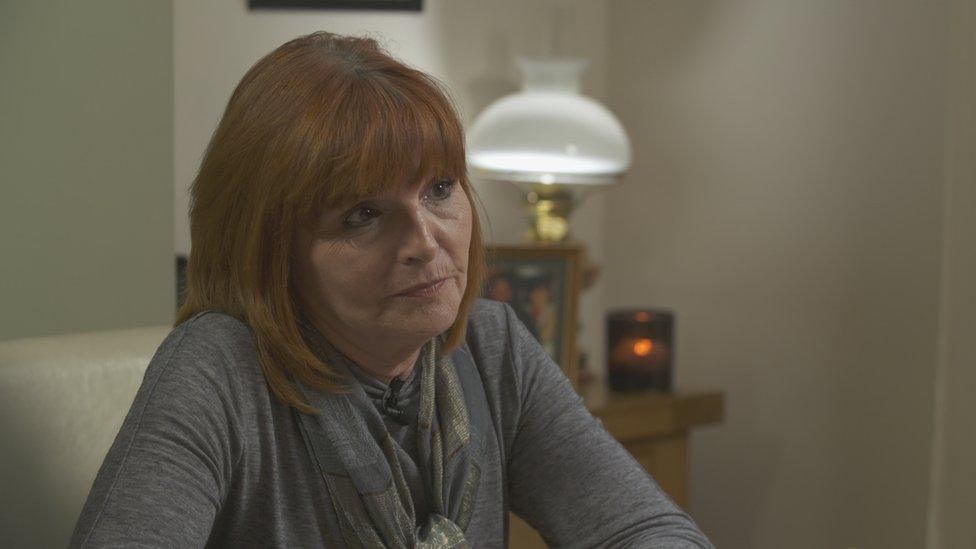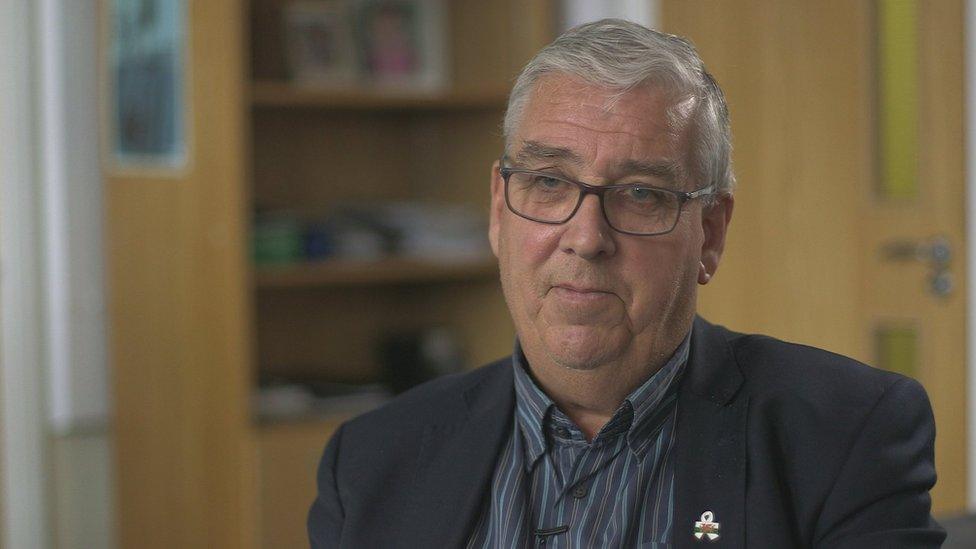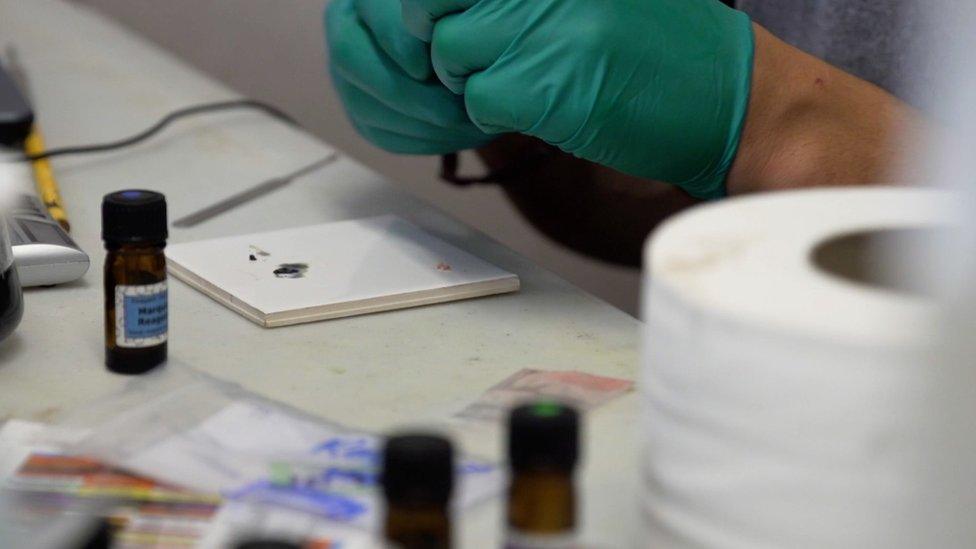Aberdare mum's drug testing call for clubs after son's death
- Published
A bereaved mother calls for change
A mother who lost her son to drugs is calling for testing facilities to be introduced in clubs and festivals in Wales, so that people are more informed about what they are taking.
Nadia Rees' 23-year-old son Ben died of an overdose in Berlin in 2015 after taking what he thought was ecstasy.
But it turned out to contain the cheaper, slower acting drug, PMA.
The Home Office said there is no safe way to consume drugs and that possession is a criminal offence.
Ben Rees was in the German capital with friends when he bought drugs from a stranger at a club, believing the pills to be MDMA, commonly known as ecstasy.
Later that night, Ben became separated from his friends, and was found shaking and cold at a nearby train station by a group of girls, who tried to take care of him until he was taken to hospital.
There he was resuscitated twice, before dying from cardiac arrest and multiple organ failure.
A few hours later, the family received a call from one of Ben's friends with the tragic news.
Speaking to BBC Wales Live, Nadia, from Aberdare, said her son had no idea what was in the pills he took.

Nadia Rees said people need to be "more realistic" about drug use
"It seems that what Ben had taken had a high percentage of PMA in it, which is a cheaper version of MDMA and it is lethal, it can be so toxic," she said.
"It takes longer to give you the effect, so people take more because they don't feel the effect straight away.
"So it seems that that's what happened to him."
Nadia believes that facilities to test the content of drugs within clubs and festivals would significantly reduce the risk involved with drug use, by making people more aware of the content and effects of what they are taking.
She also thinks that had Ben been more sceptical about the content of the tablets he was buying, he would still be alive.
Last July, North Wales Police supported a drug testing unit at the Gottwood dance music festival near Llanfaethlu, Anglesey, which allowed festival-goers to surrender their drugs in an amnesty for testing.
There they found that samples contained substances from teeth whitening powder to steroids to household products.

The North Wales Police and Crime Commissioner, Arfon Jones, said testing at festivals and in the night time economy is "a step in the right direction"
North Wales Police and Crime Commissioner, Arfon Jones, said this needs to go further, with so-called 'front of house' drug testing facilities to allow people to test exactly what they intend to take.
"Evidence has shown that around 20% of substances tested in the past are not what they were sold as, so clearly that is dangerous," he explained.
"If people are taking stuff that isn't actually what they thought they bought, it could have an adverse effect on them.
"We've unfortunately had tragedies at other festivals and I think it's a good harm reduction move.
He added: "The war on drugs over the last 50 years hasn't been a resounding success when it comes to reducing demand or use amongst young people or any age adult to be honest, so we need to look at doing things differently."
But Darren Millar, Conservative AM for Clwyd West, said drug testing "was not the answer".
"I think the best way to promote people's health and protect their health is to discourage the use of people's drugs in their entirety," he said.
"I think these sorts of drug testing facilities could potentially provide false assurances to individuals about safety of illegal drugs and give the impression their use is legitimised and that message alongside the message that drugs are dangerous seem to me rather incompatible."
Last year, the UK's policing minister said that it would allow local police forces to decide on the best approach to multi-agency drug testing at music festivals.
But the Home Office told BBC Wales Live that the Government's approach "remains clear: we must prevent illicit drug use in our communities and help those dependent on drugs to recover.
"No illegal drug can be assumed to be safe and there is no safe way to take them," a spokesperson said.
"Drugs can devastate lives, ruin families and damage communities.
"The possession of any amount of a controlled drug is a criminal offence and the supply of a controlled drug is an even more serious offence."
- Published3 September 2018

- Published5 July 2018

- Published22 May 2017
